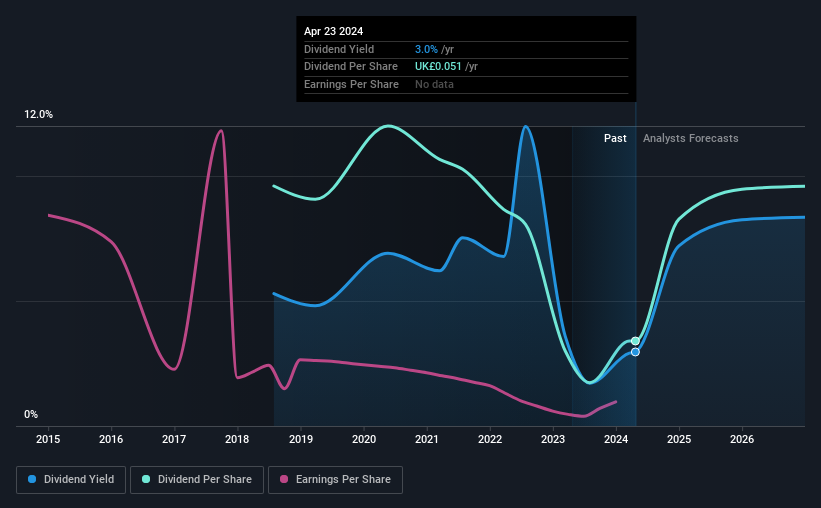Sabre Insurance Group (LON:SBRE) Is Increasing Its Dividend To £0.081
The board of Sabre Insurance Group plc (LON:SBRE) has announced that it will be paying its dividend of £0.081 on the 5th of June, an increased payment from last year's comparable dividend. Even though the dividend went up, the yield is still quite low at only 3.0%.
See our latest analysis for Sabre Insurance Group
Sabre Insurance Group's Earnings Easily Cover The Distributions
If it is predictable over a long period, even low dividend yields can be attractive. Prior to this announcement, Sabre Insurance Group's dividend made up quite a large proportion of earnings but only 52% of free cash flows. In general, cash flows are more important than earnings, so we are comfortable that the dividend will be sustainable going forward, especially with so much cash left over for reinvestment.
Over the next year, EPS is forecast to expand by 130.4%. If the dividend continues along recent trends, we estimate the payout ratio will be 29%, which is in the range that makes us comfortable with the sustainability of the dividend.
Sabre Insurance Group's Dividend Has Lacked Consistency
Sabre Insurance Group has been paying dividends for a while, but the track record isn't stellar. If the company cuts once, it definitely isn't argument against the possibility of it cutting in the future. The dividend has gone from an annual total of £0.144 in 2018 to the most recent total annual payment of £0.051. The dividend has fallen 65% over that period. Generally, we don't like to see a dividend that has been declining over time as this can degrade shareholders' returns and indicate that the company may be running into problems.
Dividend Growth Potential Is Shaky
With a relatively unstable dividend, and a poor history of shrinking dividends, it's even more important to see if EPS is growing. Earnings per share has been sinking by 18% over the last five years. Dividend payments are likely to come under some pressure unless EPS can pull out of the nosedive it is in. However, the next year is actually looking up, with earnings set to rise. We would just wait until it becomes a pattern before getting too excited.
Our Thoughts On Sabre Insurance Group's Dividend
Overall, we always like to see the dividend being raised, but we don't think Sabre Insurance Group will make a great income stock. In the past, the payments have been unstable, but over the short term the dividend could be reliable, with the company generating enough cash to cover it. Overall, we don't think this company has the makings of a good income stock.
Market movements attest to how highly valued a consistent dividend policy is compared to one which is more unpredictable. Still, investors need to consider a host of other factors, apart from dividend payments, when analysing a company. For example, we've picked out 1 warning sign for Sabre Insurance Group that investors should know about before committing capital to this stock. Looking for more high-yielding dividend ideas? Try our collection of strong dividend payers.
Have feedback on this article? Concerned about the content? Get in touch with us directly. Alternatively, email editorial-team (at) simplywallst.com.
This article by Simply Wall St is general in nature. We provide commentary based on historical data and analyst forecasts only using an unbiased methodology and our articles are not intended to be financial advice. It does not constitute a recommendation to buy or sell any stock, and does not take account of your objectives, or your financial situation. We aim to bring you long-term focused analysis driven by fundamental data. Note that our analysis may not factor in the latest price-sensitive company announcements or qualitative material. Simply Wall St has no position in any stocks mentioned.

 Yahoo Finance
Yahoo Finance 
